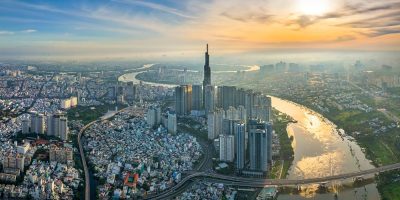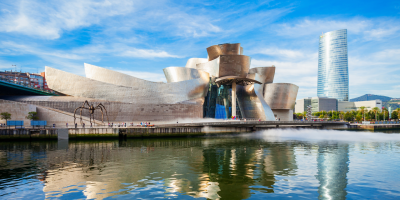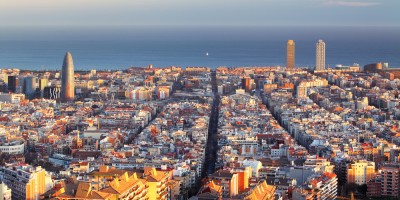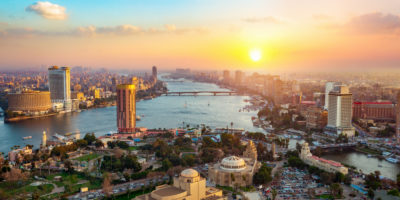-
埃及
Incentives for green hydrogen production in Egypt
25 8 月 2023
- 机构
- 外国投资
- 再生能源
Summary
Egypt aims to be Africa’s first green hydrogen producer by incentivizing companies to invest in the sector. Collaborative efforts with Germany and European companies are underway to enhance hydrogen projects and transport. Incentives include financial subsidies, tax exemptions, and administrative advantages, contingent on project conditions like commissioning, foreign funding, local materials use, and community development.
What is the status of green energy in Egypt and what role does green hydrogen play in this?
It is currently estimated that Egypt has the potential to generate 350 GW of wind energy and about 650 GW of solar energy per year, as per the Minister of Electricity and Renewable Energy’s (Mohamed Shaker El-Marqabi) declaration. As part of its National Climate Strategy 2050, Egypt has set itself the goal of reducing its carbon emissions, promoting the use of renewable energy sources and using alternative forms of energy, including green hydrogen. The importance the Egyptian government attaches to green hydrogen is evident, not least with the recent cabinet meeting on 17th of May 2023.
With a view to becoming the first African country to produce green hydrogen, new incentives for green hydrogen and derivatives projects were presented at the cabinet meeting. Based on an investment of 13 billion USD, the legal and financial benefits (new incentive package) that companies in this field can benefit from in the future were presented.
What agreements exist between Egypt and third countries to promote green hydrogen?
Agreement between Egypt and Germany on green hydrogen
The new incentive package was preceded by a meeting between the German-Egyptian Partnership for Green Hydrogen Projects committee and Egyptian officials on the 14th of March 2023. This resulted in a joint roadmap for supporting hydrogen production companies and promoting hydrogen transport and marketing. At this meeting, it was decided that the parties, the Egyptian Minister of International Cooperation (Rania Al-Mashat) and the Egyptian Minister of Public Enterprises (Mahmoud Esmat), will establish a platform to promote the use of green hydrogen.
At the above-mentioned meeting, Egypt and Germany signed two Memoranda of Understanding (MoU) to enhance cooperation in the field of green hydrogen.
The Egyptian Government also recently signed other MoUs with seven European leading companies and global alliances to produce new and renewable energy, to establish green hydrogen production complexes in Ain Al-Sokhna and the Red Sea Governorate.
The German-Egyptian cooperation in the field of green hydrogen follows Egypt’s goal to establish itself as a hub for producing green hydrogen.
Agreement between Egypt and third countries on green hydrogen
Egypt has also partnered with the European Union to advance green hydrogen production. Furthermore, in 2022, on the occasion of COP27, Egypt signed a series of MoUs with several international organisations to engage foreign investment in green hydrogen production and make Egypt a transit route for clean energy to Europe.
MoUs with global companies and alliances have defined the Red Sea Governorate as the location where green hydrogen projects will be carried out in the future.
Are there investment incentives for the production of green hydrogen in Egypt?
In the cabinet meeting of 17th of May 2023, the Egyptian Prime Minister Mustafa Madbuli stated that Egypt was offering the “largest” package of investment incentives and facilitations to companies wishing to invest in green hydrogen production projects in Egypt. He further announced the formation of a working group composed of representatives of the authorities involved to elaborate these investment incentives.
The statement indicated that companies involved in green energy projects in Egypt will benefit from incentives set out in the Law drafted in the cabinet meeting of 17th of May 2023 and Investment Law No. 72 of 2017. This targets companies involved in the “production, storage and export of green hydrogen”.
What investment incentives for the production of green hydrogen in Egypt are provided for in the draft Law of 17th of May 2023?
Financial incentives
Investments in the green hydrogen sector are subsidised in the amount of 33 % to 55 % of the income tax payable. The Ministry of Finance pays the subsidy within 45 days after the deadline for filing the tax return. The subsidy itself is not taxable. The exact conditions for the payment of the subsidy are still to be determined by the Cabinet.
All machinery, equipment, materials, consumables and vehicles (except private vehicles) used in green hydrogen and derivative projects are exempt from VAT.
No VAT is levied on exports of green hydrogen and its derivatives.
The Ministry of Finance pays most of the duties and certification costs associated with setting up the business and all import duties on imported goods used by the establishment. Further, it pays the taxes that would have been levied on the real estate used for the activity, if any.
Administrative incentives
Projects in the field of green hydrogen or its derivatives benefit from the so-called golden licence, as it is called in the Investment Law No. 72 of 2017.
All raw materials, spare parts and vehicles required for operations can be freely imported or exported directly or through distributors without the need for registration in the Importers’ Register.
The incentives apply to projects and their extensions throughout the contract period if the project agreements are concluded within a maximum of 7 years from the date of commercial commissioning.
Requirements
The investment incentives apply when:
- the project is commissioned within 5 years of the signing of the project agreement
- at least 70 % of the investment costs come from foreign funds
- at least 20 % of the locally used materials originate from Egypt
- training programmes are set up for local workers and know-how is shared
- the project company draws up a development plan for the communities in which it will operate
What investment incentives for the production of green hydrogen in Egypt are provided for in the Investment Law No. 72 of 2017?
The tax incentives granted under the Investment Law No. 72 of 2017 provide for special, general and additional incentives.
Special incentives
These are tax reductions limited to 7 years for projects that are started within 3 years (extendable to 6 years) after the provisions of the Law No. 72 of 2017 came into force (i.e. by October 2023). The investment costs consist of equity capital, long-term loans to finance the construction of the project’s movable and immovable assets, and working capital. The tax base is the taxable net profit, which is taxed at the following rates:
1) Tax exemption on 50 % of the investment costs for the implementation of a project in geographical locations with the greatest development needs (underdeveloped locations) designated by the Central Agency for Public Mobilization and Statistics (CAPMS)
The law identifies these sites as “Zone A”. According to the implementing regulations, “Zone A” includes:
- the Suez Canal Economic Zone
- the Golden Triangle Special Economic Zone
- the New Administrative Capital Zone
- the south of Giza province
- the provinces of Port Said, Ismailia and Suez (east of the canal) connected to the Suez Canal.
- border provinces, including Red Sea province south of Safaga
- the provinces in upper Egypt
- other areas in greatest need of development (to be determined by the Prime Minister)
2) Tax exemption on 30 % of the investment costs of a project located in the remaining geographical areas outside “Zone A”, referred to as “Zone B”, and operating in certain sectors.
This includes projects that:
- are active in the field of renewable energies
- export their products outside Egypt
- be carried out by a small or medium-sized (SME)
General incentives
Parallel to the special investment incentives, general investment incentives also apply. For example, projects are exempt from certain administrative requirements and fees for a period of 5 years from the date of their registration in the commercial register. Furthermore, temporary duty-free imports and exports are possible.
Additional incentives
Additional investment incentives may also be granted by decision of the Council of Ministers:
- special customs offices for the export or import of the investment project
- bearing of the value of the utility supply (such as electricity and water supply) of the property intended for the investment project or part thereof by the State
- partial bearing of the costs of a technical training programme for employees by the State
- reimbursement of half of the value of the land allocated for industrial projects, provided that the activity was started within two years of the transfer of the land
- free allocation of land for certain strategic activities
- under certain conditions, granting of a general permit for the construction, operation and management of the project as well as for the provision of the land required for this purpose. This permit shall also be deemed to be a building permit and shall be effective in its own right without any further action being required. In December 2022, the Egyptian Cabinet granted general approval for several projects.
- incorporation shares of capital companies subject to the Investment Law No. 72 of 2017 may be traded during the first two fiscal years of the company, subject to the approval of the competent Minister
- simplified acquisition of real estate, provided it is used for the project
Takeaways
- Egypt’s Green Hydrogen Drive: Egypt is strategically embracing green hydrogen production as a pivotal element of its renewable energy vision. The country’s ambitious goals and extensive incentives underscore its commitment to becoming a leading player in the global green energy landscape.
- International Collaborations: Collaborations with Germany and European partners highlight Egypt’s proactive approach to international cooperation in advancing green hydrogen technologies. Memoranda of Understanding and joint roadmaps are facilitating knowledge exchange and investments for robust hydrogen projects.
- Comprehensive Incentive Framework: Egypt’s multifaceted incentive framework, including financial subsidies, tax exemptions, and administrative benefits, showcases the government’s determination to attract investments in green hydrogen production. Stringent conditions for benefiting from these incentives emphasize the nation’s dedication to sustainable practices and local community development.
当人们想到伊朗的能源资源时,马上就会想到化石燃料资源,例如石油和天然气,它们是伊朗经济的特征。但伊朗在可再生能源领域,如风能、太阳能、生物质能和地热能方面也有很大潜力,这使这一亚洲国家成为能源部门最具吸引力的国家之一。
伊朗能源部门的战略计划为优化化石燃料开采和改善可再生能源生产,以满足国家对能源日益增长的需求。
在这短短的一段时间内,我们将看到外国投资者如何向伊朗可再生能源组织申请,以获得所需的许可证,建立可再生能源工厂,并获得伊朗政府鼓励的优惠税率。
事实上,根据最新的法律法规,伊朗可再生能源组织(SUNA)–在伊朗能源部的组织下–从投资者处通过购电协议(PPA)购买电能。PPA最近设定了新的进料关税的周期,从5年增加到20年。还应当指出,进料电价根据发电厂技术类型不同而不同并将每年调整,但不改变已生效的合同。
项目登记的程序
作为程序的第一步,外国投资者需要向SUNA提交项目注册申请书。由于只有伊朗法人实体被获准申请,外国投资者需要根据伊朗法律合并一家公司,其股份也可能完全由外国投资者所有(请参阅我的文章:在伊朗成立公司)。另外,外国投资者可以购买现有的伊朗公司的股份,成为登记的申请人。
在核实符合必要条件后,施工许可证将得到颁发。值得注意的是,持有许可证的外国投资者不得转让其股份超过25%。
此外,外国投资者需要获得三种不同的许可证:环境许可证、并网许可证和土地许可证。这些许可证应在获得建筑许可证后六个月内获得。如果申请人在该期届满时获得3张许可证中的2张,则可延期。
只有获得上述三证,外国投资者才能与SUNA议定购电协议并启动电厂的建设。
请注意,为了从上述关税中受益,生物量、地热和微型水力发电厂必须在30个月内开始商业运作。这一周期对于风力发电厂和太阳能发电厂分别减少为24个月和15个月。如果这些周期在商业运作开始之前已经通过,那么现行的进料关税将适用。
尽管存在这些挑战,伊朗依旧是最具吸引力的可再生能源市场之一,拥有大量可再生能源和政府的支持政策。
显然,建立一个发电厂需要不同的法律阶段,主要但不仅仅是,根据国家规定获得必要的许可证/允许。因此,与专门从事这一领域的伊朗律师取得联系至关重要,以便有一个全面的咨询,使投资者获得从投资前的分析到有关能源工厂的建设的建议。
写信给 Christian
伊朗——可再生能源领域的外国投资
27 9 月 2017
-
伊朗
- 再生能源
Summary
Egypt aims to be Africa’s first green hydrogen producer by incentivizing companies to invest in the sector. Collaborative efforts with Germany and European companies are underway to enhance hydrogen projects and transport. Incentives include financial subsidies, tax exemptions, and administrative advantages, contingent on project conditions like commissioning, foreign funding, local materials use, and community development.
What is the status of green energy in Egypt and what role does green hydrogen play in this?
It is currently estimated that Egypt has the potential to generate 350 GW of wind energy and about 650 GW of solar energy per year, as per the Minister of Electricity and Renewable Energy’s (Mohamed Shaker El-Marqabi) declaration. As part of its National Climate Strategy 2050, Egypt has set itself the goal of reducing its carbon emissions, promoting the use of renewable energy sources and using alternative forms of energy, including green hydrogen. The importance the Egyptian government attaches to green hydrogen is evident, not least with the recent cabinet meeting on 17th of May 2023.
With a view to becoming the first African country to produce green hydrogen, new incentives for green hydrogen and derivatives projects were presented at the cabinet meeting. Based on an investment of 13 billion USD, the legal and financial benefits (new incentive package) that companies in this field can benefit from in the future were presented.
What agreements exist between Egypt and third countries to promote green hydrogen?
Agreement between Egypt and Germany on green hydrogen
The new incentive package was preceded by a meeting between the German-Egyptian Partnership for Green Hydrogen Projects committee and Egyptian officials on the 14th of March 2023. This resulted in a joint roadmap for supporting hydrogen production companies and promoting hydrogen transport and marketing. At this meeting, it was decided that the parties, the Egyptian Minister of International Cooperation (Rania Al-Mashat) and the Egyptian Minister of Public Enterprises (Mahmoud Esmat), will establish a platform to promote the use of green hydrogen.
At the above-mentioned meeting, Egypt and Germany signed two Memoranda of Understanding (MoU) to enhance cooperation in the field of green hydrogen.
The Egyptian Government also recently signed other MoUs with seven European leading companies and global alliances to produce new and renewable energy, to establish green hydrogen production complexes in Ain Al-Sokhna and the Red Sea Governorate.
The German-Egyptian cooperation in the field of green hydrogen follows Egypt’s goal to establish itself as a hub for producing green hydrogen.
Agreement between Egypt and third countries on green hydrogen
Egypt has also partnered with the European Union to advance green hydrogen production. Furthermore, in 2022, on the occasion of COP27, Egypt signed a series of MoUs with several international organisations to engage foreign investment in green hydrogen production and make Egypt a transit route for clean energy to Europe.
MoUs with global companies and alliances have defined the Red Sea Governorate as the location where green hydrogen projects will be carried out in the future.
Are there investment incentives for the production of green hydrogen in Egypt?
In the cabinet meeting of 17th of May 2023, the Egyptian Prime Minister Mustafa Madbuli stated that Egypt was offering the “largest” package of investment incentives and facilitations to companies wishing to invest in green hydrogen production projects in Egypt. He further announced the formation of a working group composed of representatives of the authorities involved to elaborate these investment incentives.
The statement indicated that companies involved in green energy projects in Egypt will benefit from incentives set out in the Law drafted in the cabinet meeting of 17th of May 2023 and Investment Law No. 72 of 2017. This targets companies involved in the “production, storage and export of green hydrogen”.
What investment incentives for the production of green hydrogen in Egypt are provided for in the draft Law of 17th of May 2023?
Financial incentives
Investments in the green hydrogen sector are subsidised in the amount of 33 % to 55 % of the income tax payable. The Ministry of Finance pays the subsidy within 45 days after the deadline for filing the tax return. The subsidy itself is not taxable. The exact conditions for the payment of the subsidy are still to be determined by the Cabinet.
All machinery, equipment, materials, consumables and vehicles (except private vehicles) used in green hydrogen and derivative projects are exempt from VAT.
No VAT is levied on exports of green hydrogen and its derivatives.
The Ministry of Finance pays most of the duties and certification costs associated with setting up the business and all import duties on imported goods used by the establishment. Further, it pays the taxes that would have been levied on the real estate used for the activity, if any.
Administrative incentives
Projects in the field of green hydrogen or its derivatives benefit from the so-called golden licence, as it is called in the Investment Law No. 72 of 2017.
All raw materials, spare parts and vehicles required for operations can be freely imported or exported directly or through distributors without the need for registration in the Importers’ Register.
The incentives apply to projects and their extensions throughout the contract period if the project agreements are concluded within a maximum of 7 years from the date of commercial commissioning.
Requirements
The investment incentives apply when:
- the project is commissioned within 5 years of the signing of the project agreement
- at least 70 % of the investment costs come from foreign funds
- at least 20 % of the locally used materials originate from Egypt
- training programmes are set up for local workers and know-how is shared
- the project company draws up a development plan for the communities in which it will operate
What investment incentives for the production of green hydrogen in Egypt are provided for in the Investment Law No. 72 of 2017?
The tax incentives granted under the Investment Law No. 72 of 2017 provide for special, general and additional incentives.
Special incentives
These are tax reductions limited to 7 years for projects that are started within 3 years (extendable to 6 years) after the provisions of the Law No. 72 of 2017 came into force (i.e. by October 2023). The investment costs consist of equity capital, long-term loans to finance the construction of the project’s movable and immovable assets, and working capital. The tax base is the taxable net profit, which is taxed at the following rates:
1) Tax exemption on 50 % of the investment costs for the implementation of a project in geographical locations with the greatest development needs (underdeveloped locations) designated by the Central Agency for Public Mobilization and Statistics (CAPMS)
The law identifies these sites as “Zone A”. According to the implementing regulations, “Zone A” includes:
- the Suez Canal Economic Zone
- the Golden Triangle Special Economic Zone
- the New Administrative Capital Zone
- the south of Giza province
- the provinces of Port Said, Ismailia and Suez (east of the canal) connected to the Suez Canal.
- border provinces, including Red Sea province south of Safaga
- the provinces in upper Egypt
- other areas in greatest need of development (to be determined by the Prime Minister)
2) Tax exemption on 30 % of the investment costs of a project located in the remaining geographical areas outside “Zone A”, referred to as “Zone B”, and operating in certain sectors.
This includes projects that:
- are active in the field of renewable energies
- export their products outside Egypt
- be carried out by a small or medium-sized (SME)
General incentives
Parallel to the special investment incentives, general investment incentives also apply. For example, projects are exempt from certain administrative requirements and fees for a period of 5 years from the date of their registration in the commercial register. Furthermore, temporary duty-free imports and exports are possible.
Additional incentives
Additional investment incentives may also be granted by decision of the Council of Ministers:
- special customs offices for the export or import of the investment project
- bearing of the value of the utility supply (such as electricity and water supply) of the property intended for the investment project or part thereof by the State
- partial bearing of the costs of a technical training programme for employees by the State
- reimbursement of half of the value of the land allocated for industrial projects, provided that the activity was started within two years of the transfer of the land
- free allocation of land for certain strategic activities
- under certain conditions, granting of a general permit for the construction, operation and management of the project as well as for the provision of the land required for this purpose. This permit shall also be deemed to be a building permit and shall be effective in its own right without any further action being required. In December 2022, the Egyptian Cabinet granted general approval for several projects.
- incorporation shares of capital companies subject to the Investment Law No. 72 of 2017 may be traded during the first two fiscal years of the company, subject to the approval of the competent Minister
- simplified acquisition of real estate, provided it is used for the project
Takeaways
- Egypt’s Green Hydrogen Drive: Egypt is strategically embracing green hydrogen production as a pivotal element of its renewable energy vision. The country’s ambitious goals and extensive incentives underscore its commitment to becoming a leading player in the global green energy landscape.
- International Collaborations: Collaborations with Germany and European partners highlight Egypt’s proactive approach to international cooperation in advancing green hydrogen technologies. Memoranda of Understanding and joint roadmaps are facilitating knowledge exchange and investments for robust hydrogen projects.
- Comprehensive Incentive Framework: Egypt’s multifaceted incentive framework, including financial subsidies, tax exemptions, and administrative benefits, showcases the government’s determination to attract investments in green hydrogen production. Stringent conditions for benefiting from these incentives emphasize the nation’s dedication to sustainable practices and local community development.
当人们想到伊朗的能源资源时,马上就会想到化石燃料资源,例如石油和天然气,它们是伊朗经济的特征。但伊朗在可再生能源领域,如风能、太阳能、生物质能和地热能方面也有很大潜力,这使这一亚洲国家成为能源部门最具吸引力的国家之一。
伊朗能源部门的战略计划为优化化石燃料开采和改善可再生能源生产,以满足国家对能源日益增长的需求。
在这短短的一段时间内,我们将看到外国投资者如何向伊朗可再生能源组织申请,以获得所需的许可证,建立可再生能源工厂,并获得伊朗政府鼓励的优惠税率。
事实上,根据最新的法律法规,伊朗可再生能源组织(SUNA)–在伊朗能源部的组织下–从投资者处通过购电协议(PPA)购买电能。PPA最近设定了新的进料关税的周期,从5年增加到20年。还应当指出,进料电价根据发电厂技术类型不同而不同并将每年调整,但不改变已生效的合同。
项目登记的程序
作为程序的第一步,外国投资者需要向SUNA提交项目注册申请书。由于只有伊朗法人实体被获准申请,外国投资者需要根据伊朗法律合并一家公司,其股份也可能完全由外国投资者所有(请参阅我的文章:在伊朗成立公司)。另外,外国投资者可以购买现有的伊朗公司的股份,成为登记的申请人。
在核实符合必要条件后,施工许可证将得到颁发。值得注意的是,持有许可证的外国投资者不得转让其股份超过25%。
此外,外国投资者需要获得三种不同的许可证:环境许可证、并网许可证和土地许可证。这些许可证应在获得建筑许可证后六个月内获得。如果申请人在该期届满时获得3张许可证中的2张,则可延期。
只有获得上述三证,外国投资者才能与SUNA议定购电协议并启动电厂的建设。
请注意,为了从上述关税中受益,生物量、地热和微型水力发电厂必须在30个月内开始商业运作。这一周期对于风力发电厂和太阳能发电厂分别减少为24个月和15个月。如果这些周期在商业运作开始之前已经通过,那么现行的进料关税将适用。
尽管存在这些挑战,伊朗依旧是最具吸引力的可再生能源市场之一,拥有大量可再生能源和政府的支持政策。
显然,建立一个发电厂需要不同的法律阶段,主要但不仅仅是,根据国家规定获得必要的许可证/允许。因此,与专门从事这一领域的伊朗律师取得联系至关重要,以便有一个全面的咨询,使投资者获得从投资前的分析到有关能源工厂的建设的建议。





















